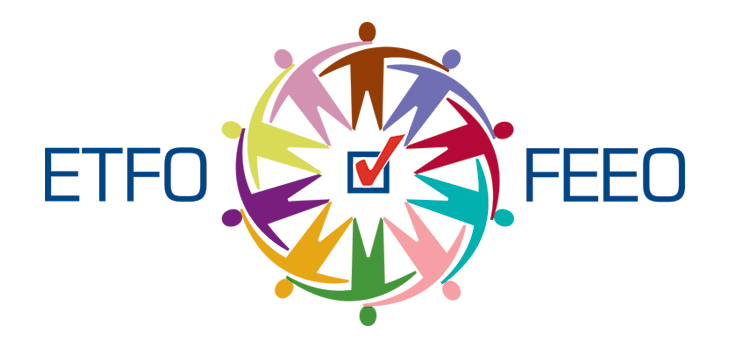The following information regarding the Ontario Government’s Voluntary Redeployment Program was sent to ETFO members on May 9, 2020. This post was modified on May 15, 2020.
Background
The Ontario Government has launched a Voluntary Redeployment Program (VRP) unique to a COVID-19 response plan which will enable some staff in the education sector to volunteer for temporary redeployment in the community.
A portal has been set up to match skills and experiences and a member can use this portal to apply to be considered for placement in a community facility that is in critical need of additional staffing resources. The plan is designed for employees who may not be directly involved in the instruction of students at this time. Casual or occasional staff who were laid off in March may apply to volunteer in the program and, if selected, will be paid in accordance with their collective agreement.
ETFO has expressed support for the program in general, recognizing the unique community needs but has also emphasized that the entire process must be voluntary and that members are able to opt out at various stages of the redeployment without any consequence for doing so.
ETFO has also worked to ensure that members who opt to voluntarily participate and are matched to a community facility will receive the necessary training, orientation, safety and personal protective equipment before they begin their first shifts and will be paid while doing so. This Voluntary Redeployment Plan will continue until there is no longer an active emergency declaration under the Emergency Management and Civil Protection Act.
Members who are selected for temporary voluntary redeployment will be required to sign a template agreement. They will continue to receive all compensation entitlements under the ETFO Collective Agreement including salary, benefits and pension contributions, where applicable. Members will also be entitled to receive the emergency pandemic premium, if applicable, and access the childcare benefit available to those working during the pandemic. The program may extend into the summer months if pandemic-related issues continue at their current rate. Members will be covered by the policies and procedures at the redeployment work site including the provisions relating to shift assignments, hours of work, breaks etc. They will not be covered by any collective agreement at that site but will have access to the local union representative, if any, should a question or issue arise.
Potential community placements for education staff include: residential childcare facilities and residential homes for youth; residential group homes for those with developmental disabilities, Violence Against Women (VAW) and anti-human trafficking residential sites; youth justice residential facilities; and emergency homeless shelters.
It is important to emphasize that members who volunteer can opt out at any time without reprisal or consequence including:
- when they receive notification of the redeployment workplace,
- before or after their safety training and orientation, and
- any time after they commence working at the redeployment workplace.
It is expected, however, that they will give as much notice as possible prior to terminating their assignment. Similarly, their assignment can be terminated by the redeployment employer without any consequence to their employment with their school board.
Access the Voluntary Redeployment Program Workforce Matching Portal
Make an Informed Decision about Voluntary Redeployment
Please consider all the following factors before deciding whether to participate in the Ministry’s temporary Volunteer Redeployment Program.
ETFO is supporting the VRP
ETFO’s support means that we have sought to ensure that member rights are protected if they choose to volunteer. However, ETFO does not assume any liability for any workplace accidents or illness and cannot represent its members over disputes about local workplace assignments etc.
ETFO has clearly communicated to the government that our members are working together in the education of students through distance learning and that they may not have the time to volunteer or demonstrate any interest in doing so.
It is worth repeating that individual involvement is on a voluntary basis and members have the ability to opt out at any time if they are uncomfortable or if they change their mind without reprisal or consequence.
Consider Your Health and Safety
Remember that members are entitled to all of the rights and protections of the Occupational Health and Safety Act. With regard to the receiving employer they will provide:
- Specific training on COVID-19 related protocols (physical distancing, handwashing, disinfecting, etc.)
- COVID-19 related personal protection equipment (PPE) if recommended, in sufficient supply along with training specific to the PPE. General health and safety training for the worksite must be provided. This would include the location of the health and safety bulletin board, location of WHMIS Safety Data Sheets, location of asbestos if any, etc.
- Appropriate information about students/clients. This would include: Notification of Risk of physical injury from a person with a history of violence; information about children who are medically fragile or have prevalent medical conditions; and notification of COVID-19 cases.
- Policies and procedures, job routines, location of supplies.
- Emergency Procedures for the specific workplace such as: lockdown and fire evacuation procedures; eyewash station locations; and first aid kit locations.
- Hazard and injury reporting protocols including the name of the supervisor, and names and contact information of the health and safety representative and/or the Joint Health and Safety Committee (JHSC) at the workplace site.
Please see the ETFO Health and Safety website for links to reputable sources on COVID-19.
Some additional items to consider:
Rates of Pay (including pandemic pay)
Daily occasional teachers may be entitled to pandemic pay amounting to an additional $4 per hour. If applicable, members would need to ensure correct pay after completing work. The pandemic pay is only applicable in some jobs and therefore, it is not guaranteed. Members should be aware of this distinction prior to accepting a position.
Education workers may be entitled to pandemic pay amounts to an additional $4 per hour. If applicable, members would need to ensure correct pay after completing work. The pandemic pay is only applicable in some jobs and therefore, is it not guaranteed. Members should be aware of this prior to accepting a position.
Experience Credit
For both teachers and education workers, all work should count towards experience under the Collective Agreement, as would a normal teaching day. This experience would apply to both experience credit for salary and experience for seniority purposes.
Pension Implications
From a pension perspective, members would continue to have the ability to contribute to either OMERS or OTPP. Teachers (members of OTPP) can earn pension credit for up to the maximum number of teaching days in any school year. In other words, in one school year, a member of OTPP cannot accumulate more than one year of pension credit. If in error, an employer deducted more pension contributions than allowable, the OTPP would refund those excess contributions to the member. The receiving employer is responsible for tracking and reporting your hours worked, consistent with your collective agreement and will report these calculations to your school board.
Please note that no member would be able to receive pension credit for more than one (1) year in any 12-month period.
Working Conditions and Representation
The temporarily redeployed employee will be supervised and is under the direction of the receiving employer in accordance with their respective policies and procedures. Members must understand that the receiving employer is responsible for the workplace conditions and has oversight of the job duties. The receiving union will deal with any issues or concerns arising from these specific conditions but you will not be covered by their collective agreement and there will be no ability to grieve or proceed to arbitration on any issues covered by the local practices and conditions.
What If I Get COVID-19 During Redeployment?
Members must consider their individual circumstances related to health and safety and the potential health and safety of those in their family. A variety of factors must be considered prior to volunteering.
If a member is redeployed, gets COVID-19 and is no longer able to work, members would be able to make a claim under the Workplace Safety and Insurance Board (WSIB).
Additionally, if a long-term absence results, members may have access to long-term disability insurance if this coverage exists under their respective collective agreement. Long-term disability insurance will not be available to members where it is not currently available under their collective agreement.
Can I Still Receive the Canadian Emergency Response Benefit (CERB)?
Members may earn up to $1000 per month before CERB is impacted. Occasional teachers may want to consider the potential impact of VPR on CERB prior to volunteering.
Members should visit the Canada Revenue Agency website to gain a complete understanding of the Canadian Emergency Response Benefit and the implications of earning additional salary during this time period.




